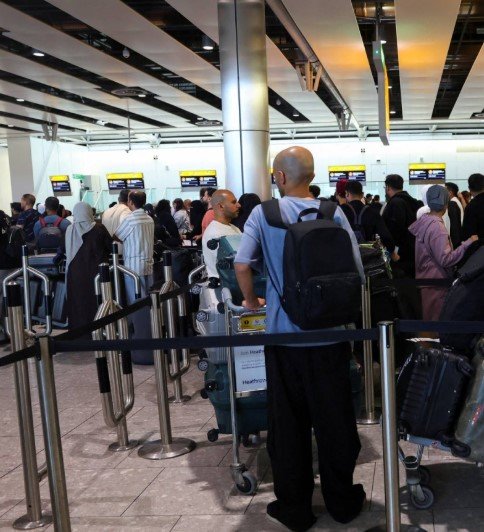A major cyberattack has hit check-in systems at several key European airports, leading to widespread flight delays and cancellations for the second day in a row. The attack, which started late Friday, targeted software from U.S. company Collins Aerospace, forcing staff to switch to manual processes and affecting thousands of travelers across the continent as of September 22, 2025.
What Sparked the Disruptions
The cyberattack began impacting airports on September 20, 2025, when automated check-in and boarding systems went down. Officials linked the issue to Collins Aerospace, a provider of critical software for passenger processing, including boarding passes and luggage handling.
This forced airlines to rely on handwritten boarding passes and backup laptops, slowing operations to a crawl. By Sunday, the fallout continued, with no quick fix in sight from the company.
Experts point out that such attacks highlight growing risks in the aviation sector, where digital systems are deeply connected. A recent report noted a 600 percent rise in cyberattacks on aviation from 2024 to 2025, driven by increased reliance on online tools.

Hardest Hit Airports and Cancellations
Brussels Airport suffered the most, canceling nearly 140 departures planned for Monday, September 22, 2025. This came after 25 cancellations on Saturday and 50 on Sunday, as the airport urged airlines to halt half of its 276 scheduled flights.
Other major hubs like London’s Heathrow and Berlin’s Brandenburg also faced chaos, though they showed some recovery by Sunday. Departures boards at these sites indicated fewer delays as staff adapted to manual methods.
Here’s a quick look at the impact on key airports:
| Airport | Cancellations (Saturday) | Cancellations (Sunday) | Expected Monday Impact |
|---|---|---|---|
| Brussels | 25 | 50 | Nearly 140 departures canceled |
| Berlin Brandenburg | Minimal | Few | Delays but most flights operating |
| London Heathrow | Several | Moderate | Improving with manual check-ins |
Smaller airports in Belgium and Germany reported minor issues, but the attack stayed focused on larger operations.
Effects on Travelers and Airlines
Passengers faced long lines, missed connections, and uncertainty. Many described scenes of frustration, with families waiting hours for updates and business travelers scrambling to rebook.
Airlines brought in extra staff to handle the manual workload, but the process remained slow. One traveler at Brussels shared on social media about a four-hour delay that turned into a cancellation, forcing an overnight stay.
The disruptions come at a busy time for European travel, with fall schedules packed. Economic ripple effects include lost revenue for airlines and added costs for hotels and alternative transport.
- Tips for affected passengers: Check flight status directly with your airline before heading to the airport.
- Consider travel insurance that covers cyber-related delays.
- Use airport apps for real-time updates on queues and alternatives.
Response from Authorities and Companies
The European Commission stated that aviation safety and air traffic control remained untouched by the attack. Investigations are ongoing to find the source, which could involve hackers, criminals, or state actors.
Collins Aerospace, part of RTX Corp., said it was working on a secure update but provided no timeline. Airports adapted by shifting to manual check-ins and adding personnel to manage crowds.
This incident echoes past events, like the 2024 global outage that grounded flights worldwide due to a software glitch. Officials stress the need for stronger cybersecurity in critical infrastructure.
Broader Implications for Aviation Security
The attack raises questions about vulnerabilities in global supply chains for airport tech. With air travel expected to hit record highs in 2025, experts call for better defenses against cyber threats.
Similar disruptions have hit other sectors recently, including a 2025 Belgian airspace shutdown from a computer failure. This event could push for new EU regulations on software providers.
As digital tools become essential, balancing convenience with security is key. Travelers and airlines alike hope for a swift resolution to avoid further chaos.
What do you think about these cyber threats to travel? Share your experiences in the comments and pass this article along to help others stay informed.
